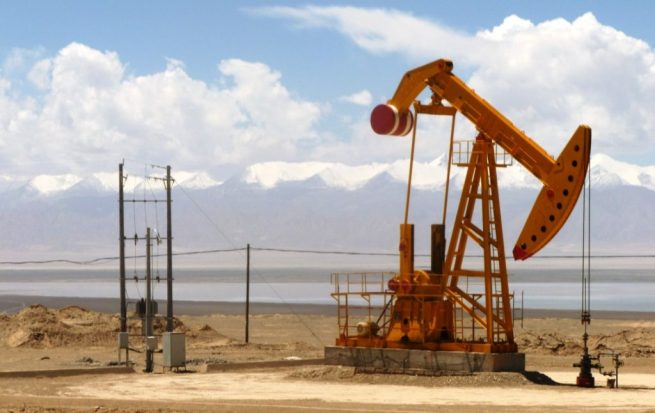Oil, gas to usher in US$1bn sector for Zim
ZIMBABWE is well on course on its journey towards finding key resources that may usher in over a billion dollar (USD) oil and gas industry, if Australia Stock Exchange (ASX) listed exploration firm, Invictus Energy, makes a commercial discovery at its Muzarabani prospect.
The Australian company, which is majority owned by Zimbabwe registered Geo-Associates, intends to sink two oil and gas test wells in October next year to prove the possible existence of the two energy sources within its Muzarabani prospective area on the borders with Zambia and Mozambique.
It is widely believed that the discovery of oil or gas in Muzarabani — Zimbabwe’s Cahorra Bassa Basin of Mashonaland Central, is a potential game changer for the country in terms of job creation, energy security, economic growth, export and State revenue among other benefits.
The Southern African country is presently heavily dependent on mining, mainly gold, platinum chrome and diamond, as well tobacco, for the generation of export earnings.
Invictus Energy director Paul Chimbodza said recently that extensive studies had been undertaken to ascertain the existence of the energy resources in the firm’s special grant area covering 100 000 hectares, and the results have been hugely encouraging.
The junior oil and gas exploration firm has since done extensive reinterpretation of data gathered by oil giant Mobil in the early 90s, largely scouring for oil deposits, and as such focusing less on the now key global energy source of gas, using latest technology, which may tip the scales.
Independent experts contracted by Investus to conduct tests on its prospective areas concluded that there was strong evidence of potential existence of oil or gas, with the results showing inclination towards multi-trillion cubic feet (TCF) gas, and multi-million barrels of condensate.
Chimbodza said the extensive work thus, mostly on the historical data collected by Mobil in the early 1990s, had so far gobbled over US$3,5 million, further pointing out they were conducting on-site specialist tests (seismics) to narrow the margin of drilling dry holes.
“We have poured in over US$3,5 million to date, but the big ticket items are starting to come in now where we are looking at drilling. Success of early exploration is key for us to galvanise exploration, not only in this area but other geological basins in the country.
“There are five other basins in the country so we are hoping that there will be a domino effect in terms of exploration activity in the hydrocarbons sector,” Chimbodza said.
As the big ticket items start to roll in, Invictus says it will now rope in financing (farm-out) partners.
Oil and gas drilling is a capital expensive activity with slim chances of commercial discovery, which requires pooling of resources to lower the risk. South Africa drilled 200 holes and made four successful discoveries while Mozambique drilled 50 with only for discoveries.
“In this project, we have spent US$3,5 million. We are going into the next phase, the drilling phase, where it will cost us around US$15 million for the actual drilling. But the mobilisation of the special type (oil and drilling) rigs, also rakes in another US$3 million to US$4 million.
“Once we get to appraisal (the drilling results), the numbers start racking up; anything between US$100 million to US$200 million and when then we go into (actual) production, we are talking of (USD) billion dollar infrastructures,” Chimbodza said.
He said the discovery of oil and gas in Zimbabwe will bring many economic benefits, including cheaper sources of power, new job opportunities, oil by-products, Government US dollar revenue, growth in exports and downstream industries.
“For you to have a successful discovery, there are things that you need to put in place and this is what we have been trying to figure out, saying do we have the right ingredients for oil and gas accumulation in the Zambezi Valley (Muzarabani?” Chimbodza said.
Government is at advanced stages of concluding a production sharing agreement, which will spell out terms of sharing oil or gas from Muzarabani if Invictus makes a commercial discovery. This is the standard practice with host governments globally.
The Government does not make any financial contribution and only participates or receives its share of the oil and gas at production, but after the contractor recoups their cost. Usually, the host Government gets between 40 and 70 percent share of profits for oil and gas.
Mines and Mining Development Minister Winston Chitando says evidence thus far, from processing of the historical data gathered by Mobil and reprocessed using modern software, confidence is high that Muzarabani hosts huge deposits of oil or gas.
The draft document is already in place and being reviewed by various arms of Government. This has seen the Government start work with Invictus to develop a hydro-carbons policy.
The Mines Minister said given that as much as US$20 million was required just to sink in a test well, Invictus upcoming programme of major events, seismic and test well drilling, was ample evidence of the huge potential Zimbabwe has for oil and gas.
“When you have an investor going out to raise US$20 million for a test well, much as they may not want to say it, it means that they are confident of the result,” he said.
“In 2021, Zimbabwe will have two oil test wells which will be drilled, that is the important milestone, and depending on the information which comes out of those test wells, that will then detect the roll out of the roll out programme,” the minister
said.
Minister Chitando said the Government had extended the firm’s three years special grant after it convinced them it had done enough development work to warrant an extension.
He said the successful discovery of oil and gas will make Zimbabwe self-sufficient in fuel and electricity, helping in the achievement of the Government’s vision of a middle-income country by 2030.-ebusinessweekly











